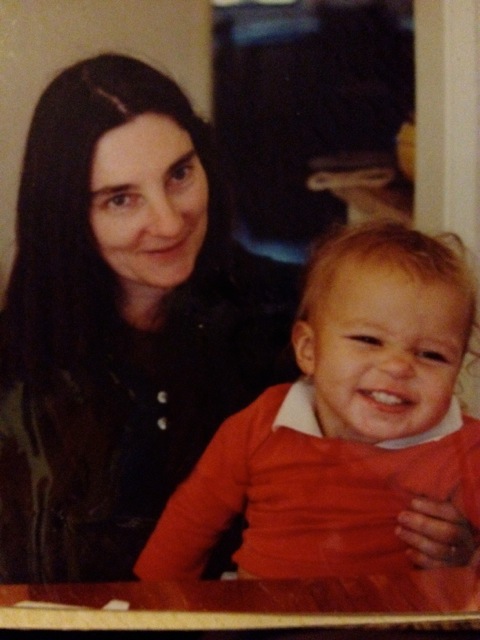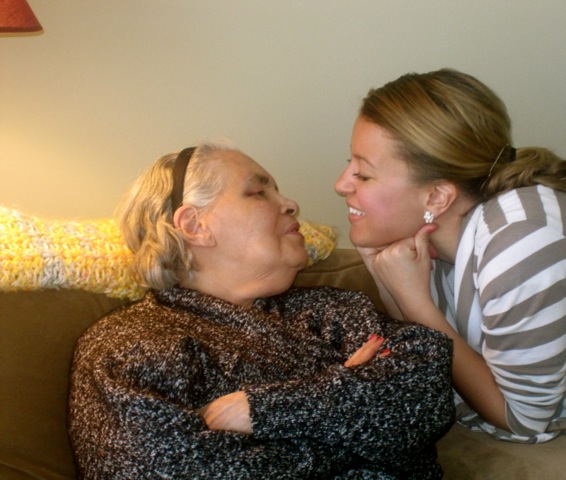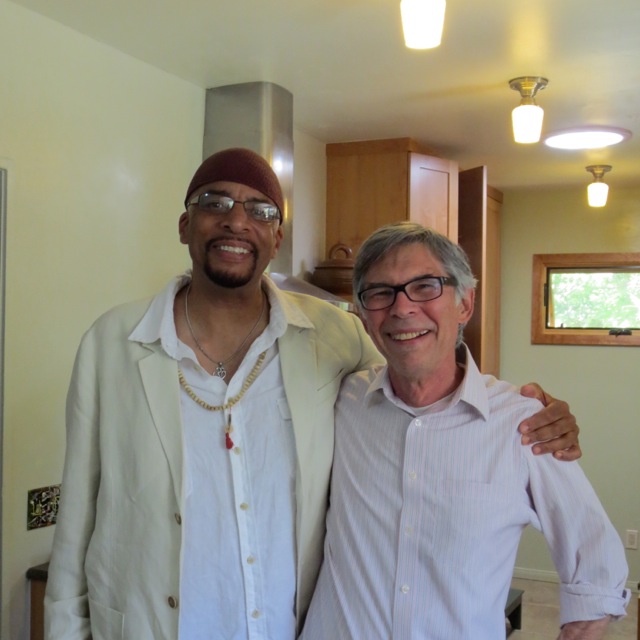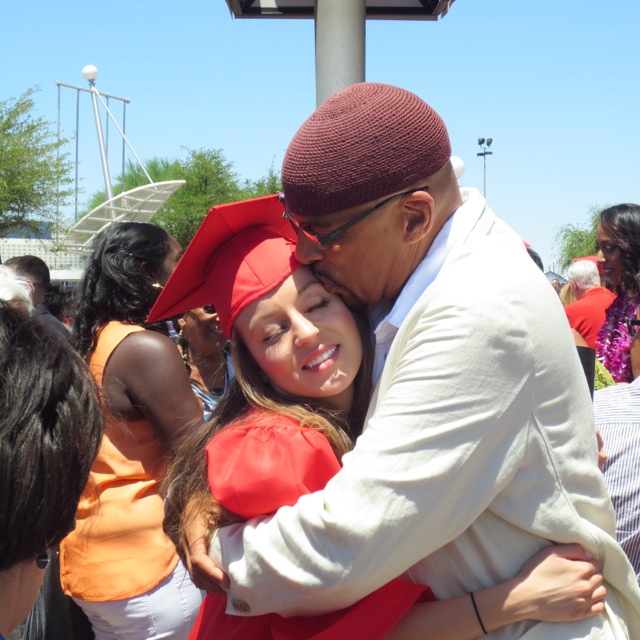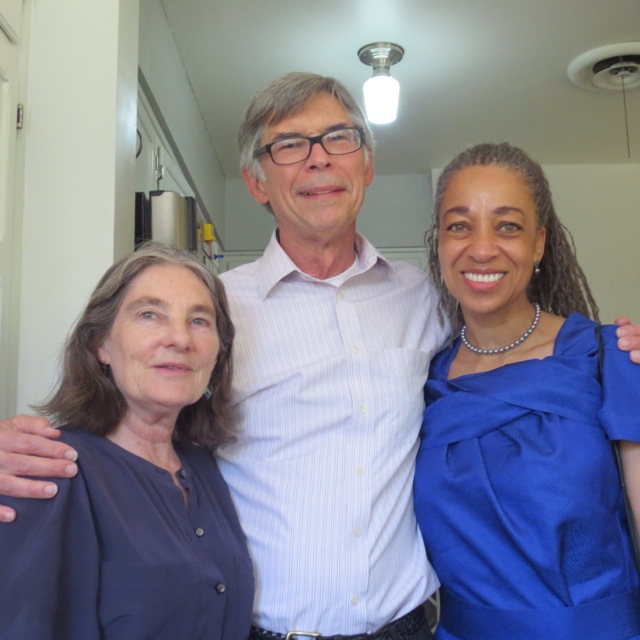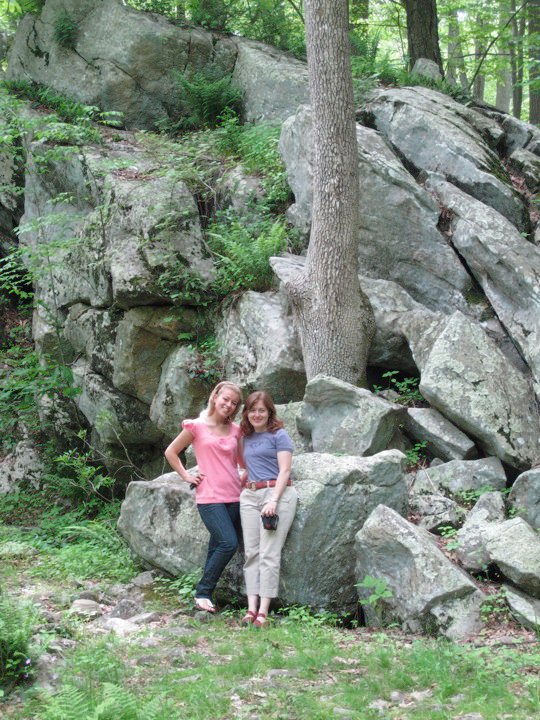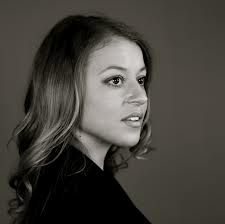 For Juliana Whitney, her adoption was never a secret. In fact, she doesn’t remember a time when she didn’t know about it.
For Juliana Whitney, her adoption was never a secret. In fact, she doesn’t remember a time when she didn’t know about it.
Adopted at birth, she has had contact with both of her birthparents, most recently when her birthfather and many of his family members attended her college graduation last May.
Juliana says living in an open adoption has allowed her to find answers to questions that she would never have found in a closed adoption such as: Why was I placed? Did my birthparents love me? Why did they choose adoptive parents?
As you’ll see from her story and her photos, the answers to these questions couldn’t be more clear.
Juliana, who works for a non-profit organization in Las Vegas and recently started an MBA program, hopes that sharing her story will give others a deeper understanding about what it means to grow up in an open adoption.
To find out more about her and her thoughts about adoption, visit her YouTube channel, Welcome to Adoption Talks With Juliana.
1. What does open adoption mean to you?
It is having the ability to ask your birth parents the questions that adoptees in closed adoptions rarely get answered. It means never wondering if you were given up because your birth parents didn’t love you or didn’t want you. It means being able to develop a thorough understanding of how and why you wound up somewhere other than in a home with your biological parents. At least this is what I experience/experienced.
2. What memories stand out for you as an adoptee growing up in an open adoption?
1. I remember visiting my grandma and grandpa on my birth dad’s side and how much they adored me. There were big family gatherings during Christmas and my parents were there with me. The whole family embraced us as family. I think any adopted child would love to have this experience. It made me confident in the love that they had for me.
2. I remember visiting NYC with my parents. They took me to spend the day with my birth mom. When my dad came to pick me up I wasn’t ready to leave so he asked if I wanted to stay. I thought that he meant stay for a few more hours and he would come back to get me.
It turned out he and my birth mom had arranged for me to spend the night at her place. I was sad about this, I really wanted to go back to the hotel and be with my parents. I didn’t show that I was upset because I didn’t want to upset her and make her think I didn’t like her. I got through the night even though I was really home sick and was so happy when I saw my parents again the following day.
3. Once when I was about 14 years old I was very emotional and my parents felt it was getting out of hand. They called my birth dad and asked him to come and help me. He drove over from California.
My parents got us each our own hotel room and we spent the weekend together. After that weekend I was happy again and my parents were so thankful that they could rely on him at a time that their nurture couldn’t overcome my nature.
3. One of the fears about open adoption is that it’s confusing to children. Was that ever an issue for you?
I didn’t realize that I had any feelings about being an adopted child until my senior year of high school. My mom sent me to an adoption therapist in Pasadena because she thought that some emotional struggles I was having might be due to being adopted. She was right. I learned a lot from my sessions with the adoption therapist. I became very introspective and would find correlations between my behavior and being an adoptee.
When I was in my sophomore year of college I wrote a research paper about open adoption versus closed adoption just to understand the differences. I learned that it is most important that adoptive parents are open to talking with their adopted children about the adoption. Many times if parents are not open to answering their adoptive child’s questions, the adoptee gets the sense that being adopted is a shameful thing. That leads to severe confusion and can negatively affect self-esteem.
Luckily when I was confused I had my parents, my birth parents and my therapist to talk to and support me. I think that the most important thing is having people to talk to. I think that having multiple people to talk to was beneficial because I got different perspectives and I could go to a different person depending on what my confusion was based on.
4. How did growing up with two sets of parents shape your view of family or of the world?
I have never felt as though I have two sets of parents. I have one set of parents and I have one set of loving people who gave me life and cared about my well being so much that they relinquished me to a couple of parents who could provide me with an even better life. Being a parent is a large responsibility. My mom and dad adopted me and raised me through the ups and downs so they get the title of “parents” all to themselves. Though I do say “birth parents”, the parents part of that term doesn’t hold the amount of clout that it holds with my adoptive parents.
Adding birth “parents” into the mix with my adoptive parents and myself as an adoptee, definitely affected my view of family and the world. My family structure is…unstructured and ambiguous. It includes legal ties that lack genetic ties and genetic ties that lack legal ties, both of which have emotional ties. I am still unable to define the relationship I have with my birth parents. It has the qualities of a friendship but with the power of an innate bond.
The ambiguous nature of my family structure and of my relationships with my birth family have taught me that not everything has to fit into a box or a definition. Some things are so much greater than a definition. The ambiguity has taught me about opportunity, thinking outside of the box, creativity and love for things and people that are much better than “normal”. I approach my family with this view and I approach the world with this view, and so far it has worked out beautifully.
5. A lot of adoptees talk about feeling alienated. Did you grapple with those feelings when you were growing up?
I did, and still do, have a fear of being alienated. Of course most people are averse to being alienated, but I am constantly consciously aware of the possibility of alienation. I think this comes from literally being alienated from my biological family and from the disconnect I experienced between myself and my peers.
I felt that I couldn’t relate to the parent-child relationship that they all experienced. I didn’t have stories that my mom told me about her pregnancy, I didn’t look like my parents and I didn’t have any innate behaviors that mimicked my parents’ behaviors. Now that I think about it these things did make me feel alienated from my parents as well, not just my peers.
As an adoptee you can get caught up in your feelings of alienation and abandonment or you can recognize that these things reside inside of you and you can work with them, make the best of them, use them as a power rather than allow them to be a weakness.
Instead of being afraid of people leaving you out, work to become the type of person that people wont want to leave out. Learn to create deep and meaningful relationships with people, develop qualities that attract people to you, and be accepting of others as you would want them to be accepting of you.
In general, there is a dark side and a bright side of adoption. In the simplest form of the emotions adoptees encounter, an adoptee can view their situation in a couple of ways:
#1. (dark side) Your birth parents gave you away, abandoned you and didn’t want you which means that you are a mistake or worthless or disposable;
#2. (bright side) Your adoptive parents wanted you, how much they love you and the fact that they chose you to be their child which means that you are valuable, treasured and worthy. I think that the way an adoptee views his or her adoption determines how they deal with any predispositions. I choose to live on the bright side.
6. When you were in high school, you wrote a speech about your fear about being rejected and about whether your adoptive parents were your “real parents.” Can you tell me a little more about that speech and what sparked it?
I gave that speech my Senior year of High School, a year that I learned a lot about myself, a lot of which had to do with my adoption. I had chosen to go to boarding school the year prior and I think that separating myself from my parents sparked some anxieties. I began thinking about my birth mother a lot.
I think I thought of her more than my birth father because I have more questions about my birth mother since I have had less contact with her. I started to put myself in her shoes. I remember worrying about my parents and worrying that I had abandoned them by leaving to go to boarding school when they didn’t expect me to leave until two years later, once High School was complete.
I also felt like I had abandoned my friends by leaving them behind at my previous high school. It was a strange sense of guilt that was entirely unexpected. This guilt then prevented me from bonding with anyone at boarding school for a while. That was a moment when I alienated myself because I was afraid of being rejected if people got to know me at my new school. This was before I started learning about making fears into strengths instead of allowing them to be weaknesses.
Anyway, there were all of these dynamics in my life that I was setting parallel to my adoption. That was when my introspective capabilities started to blossom. The bud of the introspection was my speech. That speech contained the raw, unrefined and unexplored emotions and thoughts that I had about being an adopted child.
I had my parents and my birth parents at my chapel talk. I was 17 years old and it was the first time I had ever had all 4 of them in a room at the same time. I stood in front of them, some other members of my birth family and all of my classmates. I addressed my relationship with my birth parents and my parents, I addressed how we all fit together as a family and addressed questions that I still had, I asked those questions right in front of my parents and my birth parents, hoping they would answer them later. I also addressed questions that only I could answer but that I did not yet understand. All I could do at that point was share my unrefined thoughts about these questions. I said,
“Despite my undying love for them both, I have always had a slight resentment towards them for not being, by definition, my “real parents”. Because they are not biologically connected to me I have never accepted concreteness in our relationship and I often wonder if they wish that they could have had a child of their own instead of having to adopt me. Because they are together I think that there could be secrets that are being kept just between the two of them and disclosed from me.
The most prominent secret I wonder about it what they feel towards me: have they ever wished they could give me back or trade me in, have they sensed the struggle to feel entirely connected to me as I have to them, what went into their decision to adopt a child, and what were their initial feelings surrounding my adoption? “
Reading this quote now I could cry. As I said my feelings at that time were unrefined, and also somewhat confused. I don’t think I ever resented them and I have always felt connected to them. But I definitely did have concerns that they would have rather had a child of their own. Because, in all reality, they would not have adopted me had my parents been able to conceive a child biologically.
I am not concerned about that anymore. I now have a clearer understanding of my adoption. They are my “real parents”. They exist in my life on a constant basis, they take care of me, they love me, they look out for my best interest …I don’t think a set of parents could get more real than that.
7. How much contact did you have with your birthparents when you were younger?
I had a lot of contact with my birth father and his family. I would visit them, they would visit me, they took my parents in as family as well. I would only see my birth mother once every couple of years and I had/have no contact with any of her family members.
8. How much contact do you have with them today, and are you the one who makes the arrangements or do they?
The situation is the same as when I was younger. I see my birth father and his family the most. My parents each have small families so my birth dad’s family is still like my family and my parents’ family also. With my birth dad and his family the arrangements go both ways. Sometimes I initiate the visits, sometimes they initiate the visits.
I still only see my birth mom about every two years or so. I usually initiate the contact. I usually see her whenever I am visiting somewhere nearby where she lives. We live on opposite sides of the country so that also makes it more difficult to see her than my birth father who lives one state over.
9. You mention that your adoption was easier on your birthfather than on your birthmother. Why is that?
My birth mother once told me that on the day I was born, they rolled her out of the hospital on a wheel chair with me in her arms and once she got outside she had the urge to get up and run away with me. She knew she shouldn’t do that but it only makes sense that when the reality of you giving your child up for adoption hits, it could be more difficult to separate from your baby than anticipated.
I think that birth mothers anticipate that it will be difficult, but that it is even more difficult than they could have imagined. That story makes me think it was more difficult for her to give me up than she imagined it would be.
At the time I was born my birth father was living a life as an artist in Santa Fe, NM. He wanted to know me and love me but had no desire to be a father. The open adoption arrangement was perfect for him. He has had a much easier time being in my life than she has. I have contact with him and his extended family, so he had a lot of support in keeping in contact with me.
She definitely didn’t have as much support or encouragement as he did. I know that she had a hard time getting support from her family and from my birth father’s family during her pregnancy. I don’t think that she was as eager to put me up for adoption as my birth dad was and therefore giving me up took a larger emotional toll on her.
10. What do you think your life would have been like if you hadn’t been adopted?
This has crossed my mind before. I can’t say the exact situation I would be in since my birth parents haven’t been together since I was born, so I am not sure what the custody situation would be like. I can say with confidence that my life would not be as good as it is now if I had not been adopted.
My parents have provided me with many opportunities and resources that my birth parents could not have provided. Also, I get to have two parents who love me greatly and I get to know my birth parents. If I hadn’t been adopted I wouldn’t have my lovely parents and I am pretty sure that I would not have contact with both of my birth parents.
11. Did you ever consider going back and living with your parents?
Never. I went home with my parents the day that I was born. I never lived with my birth parents so I had no desire to do so. Also, they are not together so I could have only lived with one of them. I prefer living with my parents and visiting my birth parents.
12. How did you navigate your adoption at school and with your friends — was it something you shared openly or kept to yourself?
Always shared it openly. It was hard for friends to understand. Adoption was a foreign concept to them. Honestly, some childhood friends still don’t understand it. For instance, some friends from child hood think that having questions about my birth mom means that I am mad at her which could not be further from the truth.
I love her, I understand why it might be difficult for her to have contact with me and in no way do I blame her for that. I am thankful for the times that I do see her and I am thankful for her loving me enough to find my parents to give me a great life. My adoption does not make me angry in any way… just to be clear.
13. Growing up, did you feel special or abandoned?
I think I fluctuated between the two if I think about my behaviors as a child. I wasn’t conscious of my feelings related to my adoption until I was a teenager. Even then I felt special and loved because I knew my parents chose me, I also had a lot of questions for my birth parents about why they gave me up for adoption. Having the ability to ask them the questions and get answers aided me in working through any feelings of abandonment I may have had.
14. When you talk about your adoption status, do you say “I am adopted?” or “I was adopted”? In other words, do you consider it a one-time event or an ongoing process that defines who you are today?
I say that I am adopted. It is part of who I am today. I especially view my adoption as ongoing because I have contact with my birth family. My adoption was not a one-time transaction. Having contact with my birth family means that I am frequently reminded that I am adopted. Some extended family members from my birth father’s family still don’t understand that when I say “dad” I mean my dad, not my birth dad, who they refer to as my dad. So in situations like that I have to use the fact that I am adopted to define myself and others.
15. Increased openness is supposed to be beneficial for adoptees. But was it ever a problem for you?
The only problem I ever had was that I would cry whenever I came home from visiting my birth family. It upset my parents. I think it was just an emotional situation for me and I think that leaving them (separating) was emotional for me when I was younger. It still is but I don’t cry, I just get in a strange mood for a day or two. I used to see a therapist who specialized in adoption. She told me that adoptees have a difficult time with transitions. I think that my reaction to the end of visits with my birth family is an example of that.
18. What advice do you have for adoptive parents and birthparents about raising healthy, happy children?
Adoptive Parents:
- Answer any questions that your adoptee has. Do not wait to tell an adoptee that they are adopted, that makes it seem like it is shameful and had to be hidden from them. Don’t worry, they can handle it. The earlier you tell them the more time they have to understand it, and the more time you have to help them understand.
- Don’t take it too personally if your adoptee wants to know about their birth family, it doesn’t mean that they don’t love you. Learning about one’s birth parents can be helpful for an adoptee figuring out their identity.
- Make sure your child feels comfortable asking you questions about their adoption but do not pressure them into talking about their adoption. They will talk about it if they are interested.
- If your adopted child seems to be more moody than other kids, do not hesitate to send them to therapy. I went to therapy and I don’t think I would be as self-aware if I hadn’t. Unless you are an adopted child, you cannot understand the emotions of an adopted child and an expert can be helpful. (When I was a kid I would throw tantrums. Other parents thought that I was being a brat and that my mom should punish me. She would always talk to me and try to calm me down…or just let the tantrum run its course. She says she did that because she could tell that I was having such a strong reaction to things because of something deeper and not because I was a brat.)
- Read about adoption. Not just blogs and books, but research about adoption. Learn about the things that adopted kids are at a higher risk for so you can be aware of them and take steps to either prevent them from happening or to identify them when they are happening and then deal with the issue.
- Yes your adopted child is yours and you will love this child as if it were your biological child. But, don’t get so caught up in that ideal that you ignore the fact that your child is adopted. Being adopted does affect adoptees so you have to address those effects. Embrace the fact that you have an adopted child, make sure that you remind your adoptee that they are special and loved. Sometimes adopted kids need more affection and reassurance in order to develop a secure attachment and a secure sense of self. Since I was a child I have been very open about talking about being adopted. I am not sure how my parents instilled that confidence in me, but figure out a way to do that, to make your child proud of their family.
What do you think of Juliana’s story and her advice? What do you think is the secret of a successful open adoption? Leave your comments in the space below.
Do you have an open adoption story?
Share it with our community. Email me any time or check out our Guidelines For Guest Posts.

